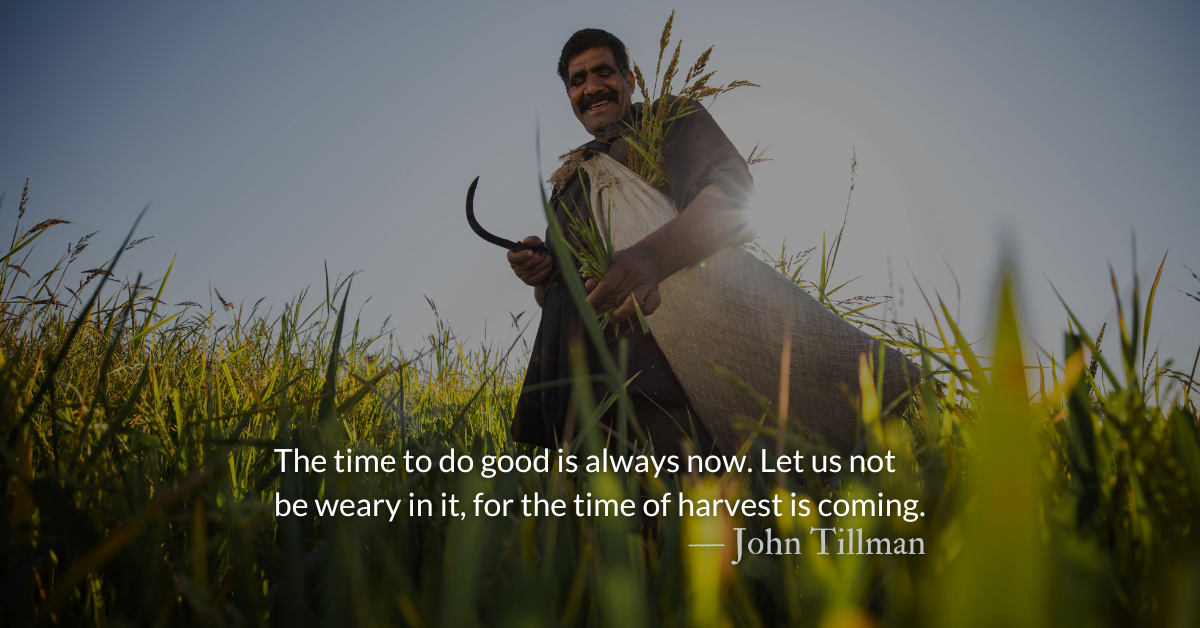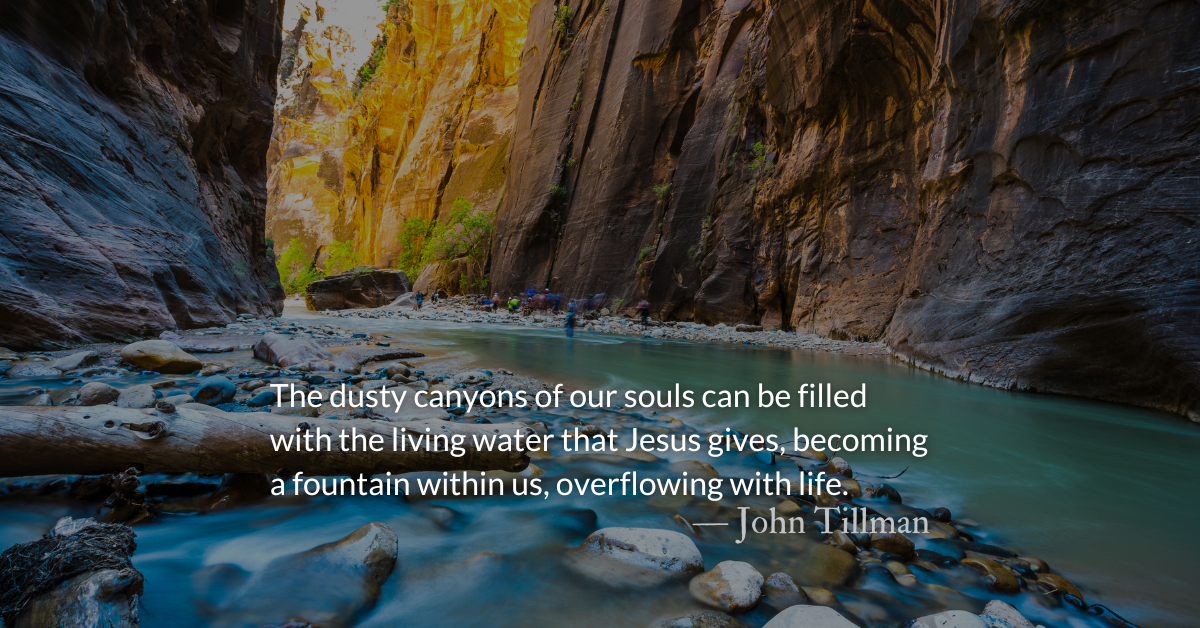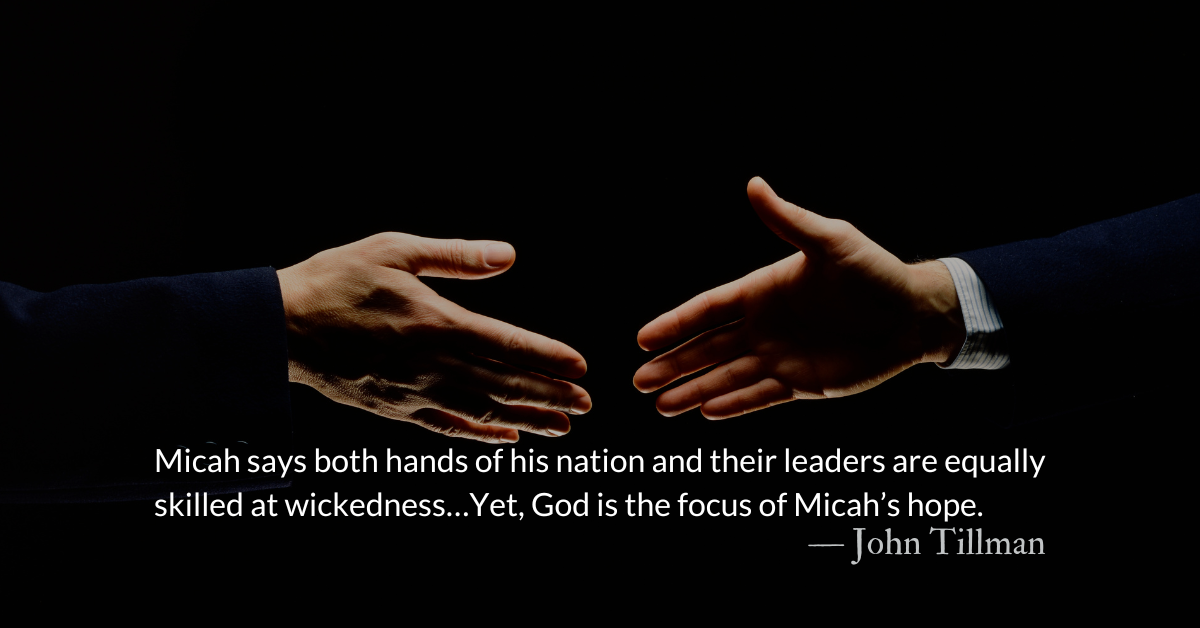Scripture Focus: Ecclesiastes 3.1-8
1 There is a time for everything,
and a season for every activity under the heavens:
2 a time to be born and a time to die,
a time to plant and a time to uproot,
3 a time to kill and a time to heal,
a time to tear down and a time to build,
4 a time to weep and a time to laugh,
a time to mourn and a time to dance,
5 a time to scatter stones and a time to gather them,
a time to embrace and a time to refrain from embracing,
6 a time to search and a time to give up,
a time to keep and a time to throw away,
7 a time to tear and a time to mend,
a time to be silent and a time to speak,
8 a time to love and a time to hate,
a time for war and a time for peace.
From John: Since we posted this prayer in 2022, some of these prayers have been answered. Let us not be weary. May we keep praying. Harvest, judgment, is coming.Reflection: What Time is It?
By John Tillman
There is a time. There is a season.
There are many well-known poems in the Bible. The poem describing the creation of humans. (Genesis 1.27) The Psalm of the good shepherd. (Psalm 23) The Lord’s prayer. (Luke 11.2-4) Paul’s poem about love. (1 Corinthians 13)
The teacher’s poem about time and seasons, however, might be the most well-known biblical poem in our culture. No small part of its fame is that it was turned into a megahit song by The Byrds, released in 1969. The song landed in a turbulent era. It seemed that the song’s opposites were all flooding the world and contending against each other.
Our time is not so different from that time. We see, hear, and feel all around us the elements of the song. Love and hate, war and peace, deconstruction and reconstruction, sowing and harvesting, mourning and joy, harm and healing.
Reading a little further, we find that the teacher also tells us of another time and season. There will be a time “to judge every deed.” There will be a season when the unseen will be seen and both the righteous and the unrighteous will face a time of judgment.
What time is it? What season are we in?
Today, let us pray that we will understand the times and seasons that we find ourselves in using some scriptures focused on seasons.
Thank God for his assurance and presence in all seasons.
Ask him to depose wickedness (within and without us) and grant us wisdom.
He changes times and seasons;
he deposes kings and raises up others.
He gives wisdom to the wise
and knowledge to the discerning. (Daniel 2.21) Pray for strength to prioritize gospel cultivation.
Preach the word; be prepared in season and out of season; correct, rebuke and encourage—with great patience and careful instruction. (2 Timothy 4.2)
Pray for grace to understand the present time.
And do this, understanding the present time: The hour has already come for you to wake up from your slumber, because our salvation is nearer now than when we first believed. (Romans 13.11)
Rest in him. He holds all things together.
But do not forget this one thing, dear friends: With the Lord a day is like a thousand years, and a thousand years are like a day. (2 Peter 3.8)
The time to do good is always now. Let us not be weary in it, for the time of harvest is coming. (Galatians 6.9)
Divine Hours Prayer: The Refrain for the Morning Lessons
God is a righteous judge; God sits in judgment every day. — Psalm 7.12
– From The Divine Hours: Prayers for Summertime by Phyllis Tickle.
Today’s Readings
Ecclesiastes 3 (Listen 3:02)
Psalm 51 (Listen 2:19)
This Weekend’s Readings
Ecclesiastes 4 (Listen 2:18), Psalm 52-54 (Listen 2:10)
Ecclesiastes 5 (Listen 2:50), Psalm 55 (Listen 3:18)
Read more about Miracles of Deliverance and Judgment
We pray for more than just miracles of weapons that do not prosper against the innocent. We pray for the even more miraculous deliverance of the hearts of evil leaders to change.
Read more about Why Do We Need the Leading of the Spirit?
The leading of the Spirit—O, how highly necessary is it! Who can be without it?











